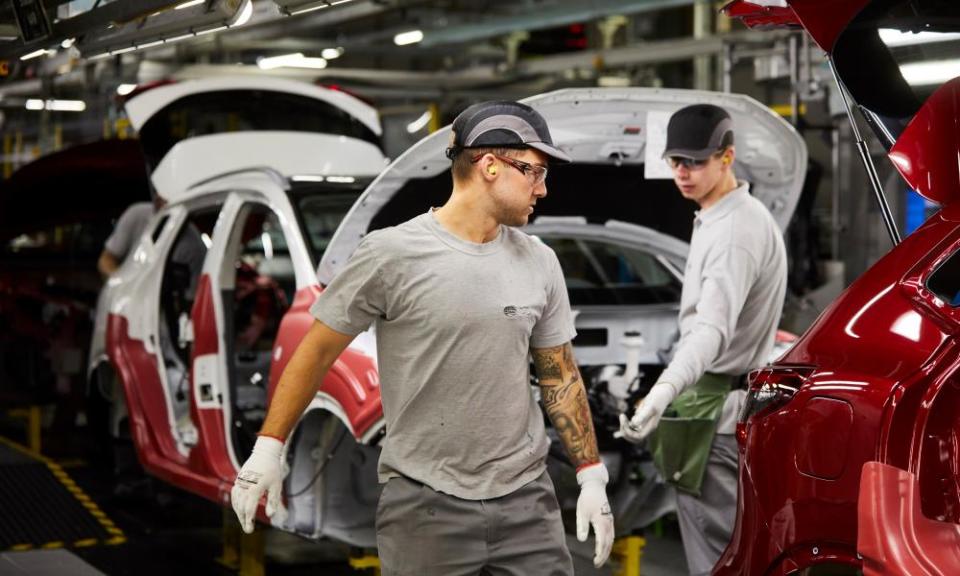Brexit will make all the election spending promises hard to keep

If the president of the United States, a non-European, feels entitled to air his views about Brexit, I see no reason why the outgoing president of the European council, Donald Tusk – a much more agreeable Donald – should not air his.
Quoting Hannah Arendt, Tusk said: “Things only become irreversible when people start to think so.” Tusk, who rightly thinks the very idea of Brexit is, to quote another US observer, Michael Bloomberg, “a mistake”, says: “Don’t give up.”
The whole thrust of Boris Johnson’s and his ally (up to a point) Nigel Farage’s approach is to make people think the result of the 2016 referendum is “irreversible”. It isn’t. But it is important that Remainers should try to make a better fist of the advantages of EU membership than they have managed so far.
The impression given by the hard-core “alt-right” is that we have been kicked around over the years by “Brussels”. True, having failed to join what became the EU at the start, and having had two applications turned down, we were bound, as the latecomer, to start with a handicap.
But the fact of the matter is that, over the years, successive prime ministers and chancellors have fought their corner, and nearly always contrived what are known these days as “deals” in the national interest. Membership of the customs union and, later, the single market, proved a great boost to British industry and services, and attracted a lot of overseas investment, not least from Japanese companies. It is commonly acknowledged that these latter had a beneficent impact on British working practices and productivity.
It was the realisation that continental Europe was outpacing the British economy that prompted the applications to join. Sure enough, for all the many problems and domestic economic policy mistakes, the British economy grew faster in the decades after entry than before.
It was George Soros who said that, with our present arrangements with the rest of the EU, we have “the best of both worlds”. We are not members of the eurozone, and are exempt from any obligation to participate in closer political union – although the fanatical Brexit brigade lie repeatedly about this. We did not have to join the European Monetary System in 1978-79 when we didn’t want to, and we did not have to subscribe to any of the 1992 Maastricht treaty provisions of which we disapproved – such as the single currency.
Many of these advantages are now threatened by the prospect of Brexit. We already knew of Nissan and Honda’s concerns about being left out of the single market – in effect about Japanese companies being double-crossed by a Tory party that, under Thatcher, made the single market the lure for such investment.
It would be better to tell those Brexiters who say 'the people have spoken' that, with a lot more knowledge about the implications, the people should be allowed to speak again
Now we have Elon Musk of Tesla, once seriously considering a new investment in the UK, opting instead for Berlin, on account of the uncertainty caused by Brexit. Musk is in the forefront of technology. So much for the attraction of global Britain!
The absurdity of it all is well brought out in the November issue of the National Institute of Economic and Social Research’s review. The NIESR estimates leaving the customs union and single market would leave the UK economy 3.5% smaller than under continued EU membership. This is generous! The government’s own estimate, which for some reason ministers do not refer to, is of a 4.9% loss of GDP.
Relative to EU membership, leaving the customs union and single market implies, according to the NIESR, that UK-EU goods trade would be “lower by 40%, and UK-EU service trade … lower by 60%”. This would be devastating, and not compensated for by the fantasy world of Singapore-style trade deals, which might take 10 years to negotiate.
That is not all. During an election campaign in which both major parties are promising largesse on an unprecedented scale, the NIESR estimates that, as a result of Johnson’s great “deal”, “government revenue would be lower by around 2.5% in the long run, or £26bn a year at 2016 prices”. They go on: “The shortfall relative to a closer economic relationship with the EU would have to be met by raising tax rates, increased public borrowing or reduced public spending, or a combination of all these options.”
Do disaffected voters who understandably used the referendum to protest against the impact of the banking crisis and subsequent austerity really want to compound the agony? I sincerely hope not.
Now, I sympathise with the Lib Dems in wanting to revoke article 50, but I think it would be much better to tell those Brexiters who say “the people have spoken” that, with a lot more knowledge about the implications, the people should be allowed to reflect and speak again.
It is not the 2016 referendum that should be honoured, but the wellbeing and future of the nation.

 Yahoo Finance
Yahoo Finance 